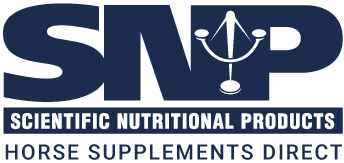We have all had a particularly wet and mild start to the autumn/winter season and some of our equine’s waistlines may not have taken the usual weight reduction which is typical for this time of year. For many horse owners this can be seen as a good thing as it lessens the worries about ‘poor-doers’ struggling to maintain weight as we enter into the winter.
However, for those horses and ponies that are prone to pile on the pounds, the combination of rich autumn grazing and reduced exercise due to the weather does mean some equines are entering into a battle of the bulge this season!
Recent studies have shown that nearly 54% of horses and ponies in the UK are obese or overweight. Modern horse keeping means that for many equines there is an increase in hard-feed and improved, lush pasture quality.
This combination has great benefits to the hard working equine athlete who is in hard work but for leisure or retired horses and ponies who are not receiving sufficient exercise they can easily become overweight which can present health risks. Obesity can cause many health issues including insulin resistance, heart conditions, joint problems, chronic inflammation and potentially a decreased life span.
Forage is a crucial part of your equine’s diet so if your horse needs to lose a few pounds it is important that you do not cut the levels of fibre and forage in his feed regime. Choose a concentrate feed which is low energy and low in starch to reduce calorie intake whilst still providing adequate levels of protein to prevent unwanted muscle loss. Make sure you are supplementing your equine's feed with vitamins and minerals such as Horse & Pony Multi-Vitamin Supplement to provide the nutrients that he could otherwise be missing out on if he is receiving a reduced diet.
Top Tips on Preventing and managing obesity from Scientific Nutritional Products
- Forage and plenty of it! This will help prevent issues such as gastric ulcers and hindgut dysfunctions and will also provide a feed source which is low in energy compared to concentrate feed. Choose a forage with a low nutrient value or consider soaking it before you feed.
- Use a standard size feed scoop and make sure you measure exactly how much feed your horse is getting per day. This will help you to regulate his portions accurately.
- Exercise is important. If your horse is out of shape or overweight remember to introduce an exercise regime slowly and build it up gradually. Be realistic and don’t ask too much of your horse too quickly – if you enjoy him for hacking and general leisure riding he is unlikely to need the same nutritional requirements as a competition horse in hard work.
- Invest in a vitamin and mineral supplement in the diet such as Horse and Pony Multi-Vitamin Supplement so that your horse is receiving the essential nutrients he needs in the diet particularly if you are reducing feed levels.
For more information on managing your horse’s weight click here >


